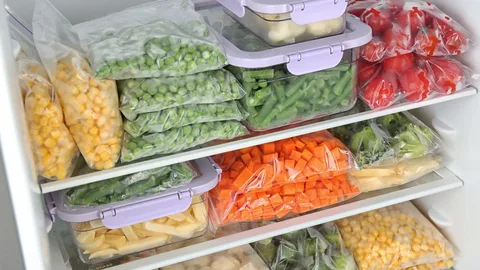Substance abuse is a big problem in the world today. It is hard to tell when someone has this problem because it happens privately. But it has bad effects on people’s lives. This article will discuss addiction and explain why someone might have a substance abuse issue.
Image source: https://www.freepik.com/free-photo/bearded-sick-man-with-flue-sitting-sofa-home-covered-with-warm-blanket-drinking-syrup-from-cough-illness-influenza-pain-concept-relaxation-home-healthcare-concepts_13457502.htm#query=Dealing%20with%20Addiction&position=15&from_view=search&track=ais
Understanding these signs of substance abuse is crucial as it helps us gauge the severity of the issue and take preventive measures while offering support.
Join us in exploring the negative impact of substance abuse on individuals, families, and communities. We can work together to combat substance abuse and create positive change by increasing awareness and gaining knowledge.
Table of Contents
The Negative Effects of Substance Use Disorder
The Negative Effects of Substance Abuse on Individuals
The substance of abuse can cause individuals to experience physical, mental, and emotional health issues. Physically, abusing illegal drugs or alcohol can lead to severe health problems such as liver damage, organ failure, withdrawal symptoms, and numerous forms of cancer.
Mentally, drug abuse can cause severe anxiety, depression, impaired judgment, and more. Emotionally, substance abuse can lead to mental health disorders, mood swings, rage or anger, lack of motivation, and difficulty connecting with others.
The Negative Effects of Substance of Abuse on Families
Substance use disorder can severely damage the relationships between family members and cause significant distress. It can lead to financial stress as families struggle to pay for treatment and support the addict. It can lead to a breakdown of communication and trust between family members, resulting in arguments or physical violence.
The Negative Effects of Substance Abuse on Communities
Substance abuse affects communities by increasing crime rates, straining social services, raising poverty levels, and causing public health concerns. Substance abuse can also lead to more dangerous behaviors, such as impaired driving or domestic violence. These issues can have a lasting negative impact on the quality of life in a community.
image source: https://www.freepik.com/free-photo/sharing-grief_5403717.htm#query=Dealing%20with%20Addiction&position=6&from_view=search&track=ais
Signs That Someone May Have a Substance Abuse Problem
Substance abuse is a common and severe problem that can affect anyone. Recognizing the signs of a person who may have a substance abuse issue can help you to get them the help they need.
Visible Changes in Physical Appearance
A person dealing with substance abuse problems may show changes in their physical appearance due to the effects of the drugs or alcohol they use. These changes may include poor hygiene, weight gain or loss, and skin problems.
Behavioral Changes
Someone abusing a substance may show changes in their behavior, such as increased agitation and irritability or withdrawal from family and friends. They may also become increasingly secretive about their activities or have sudden mood swings.
Financial Struggles Because of Drug Abuse
Substance abuse can be expensive, and a person struggling with addiction may experience financial difficulties as they try to keep up with the costs of purchasing drugs and alcohol. They may also begin to ignore responsibilities such as paying bills or rent on time.
Changes in Performance at Work and School
Image source: https://www.freepik.com/free-photo/medium-shot-couple-playing-game_13185559.htm#query=Dealing%20with%20Addiction&position=1&from_view=search&track=ais
A person struggling with substance abuse may begin to experience a decrease in their performance at work or school due to the effects of the drugs or alcohol they are using. They may also be late for work or school more frequently than usual.
Engaging in Risky Behavior
A person dealing with substance abuse may engage in risky behavior due to addiction, such as driving while under the influence.
Unusual Smell or Odor of Illegal Drugs
A person with a substance abuse problem may have an unusual smell or odor on their breath or clothes due to the drugs or alcohol they are using.
Strategies for Preventing or Combating Substance Abuse
Substance abuse prevention is educating individuals on the risks associated with using and misusing substances such as alcohol, drugs, and tobacco. Prevention strategies have been designed to reduce risk factors that can lead an individual to engage in substance use while also increasing protective factors that can help prevent misuse.
Education:
Educating individuals and families about the consequences of substance abuse is one of the most effective prevention strategies. Through education, people can learn about the risks associated with using substances, drug addiction treatment, signs of addiction, mental health disorder, mental health services administration services, and other drugs related topics.
Access Restriction:
Making it more challenging to access substances can also help prevent misuse. This can be achieved through legislative measures, such as raising the legal drinking age or increasing cigarette taxes.
Family Support:
Creating a strong and supportive family environment is one of the most critical factors in preventing drug use. Families should actively discuss the potential risks associated with using drugs and alcohol, express clear expectations about substance use, and provide a support network should an individual need help.
Community Involvement:
Communities can also play an essential role in preventing substance abuse. This can be done by creating after-school programs for youth, providing support services to individuals who are at risk of developing an addiction, and working with local law enforcement to increase access to resources such as treatment centers.
Early Intervention:
Early intervention is an essential part of the prevention process. Intervening as soon as possible can help prevent further harm and address any underlying issues contributing to drug misuse.
How to Offer Support to Those With A Mental Health Disorders?
Knowing how to offer support best can be challenging if you have a loved one struggling with substance abuse. It’s important to remember that offering emotional and financial help is not the same as enabling an addiction. Here are some nice tips on how to provide practical and supportive assistance:
- Understand that recovery takes time. It is essential to be patient and have realistic expectations, as the recovery process from illicit drugs abuse can take a long time.
- Focus on positive reinforcement. Praise your loved one for any positive changes they are making or successes in their recovery, no matter how small. This will help motivate them to continue along the path to sobriety.
- Encourage honest and open communication. Let them be aware that you are there to listen without judgment. If they don’t want to talk, be patient and try again another time.
- Connect them with professional help. Offer to take them to their appointments or find helpful resources online that may provide support.
- Show compassion and understanding. Understand that it is a difficult journey, and remind them that they are supported and that you will be there for them every step of the way.
- Avoid lecturing or criticizing them. No matter how frustrated you may be, it is important to remain supportive and not blame your loved one for their addiction or any decisions they may have made while using.
- Educate yourself about substance abuse. Take the time to learn more about mental disorders, addiction, and how to offer support so that you can be better equipped to help your loved one in their recovery journey.
By following these tips, you can provide practical help and support to your loved one on their path to recovery. Remember, the most important thing is showing your love and acceptance so they can feel safe and accepted in their journey toward sobriety.
Concluding Thoughts on Dealing with Addiction
Addiction to substances can have a devastating impact on individuals and their families. Fortunately, there are steps we can take as a society—such as increasing access restrictions and community involvement—to help prevent substance misuse in the first place.
Additionally, for those already struggling with an addiction, providing emotional and financial support while avoiding lecturing or criticizing them is essential to helping them find lasting recovery. We can work together to create a healthier future free of substance abuse by taking these measures.





